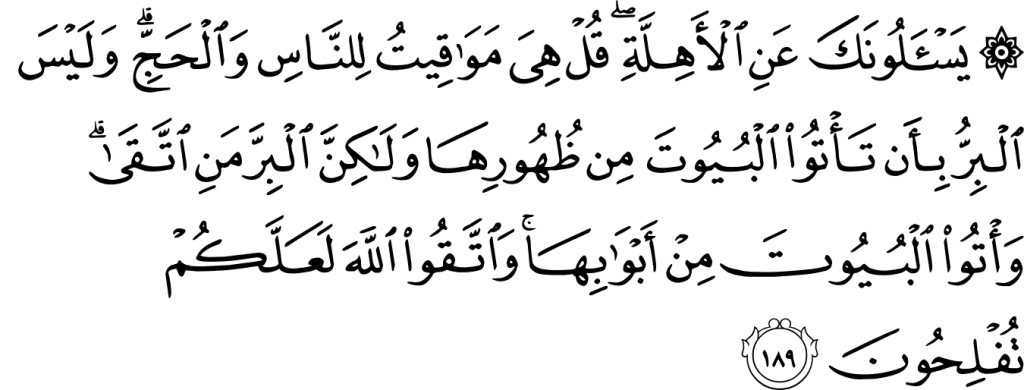
The concluding pair of verses from Surah Al-Baqarah emerge from the Qur’anic treasures to present themselves as ministries of protection and heavenly compassion. Surah Al-Baqarah’s last two verses, numbers 285 and 286, occupy a highly respected status in the Islamic faith. These were recommended for daily evening reading by the Prophet Muhammad (ﷺ). This verse is the prayer, desire, and strength for those who are facing the challenges of life. Here we will discover the real meaning of the last two verses of Surah Al-Baqarah.
The Importance of Surah Al-Baqarah
Surah Al-Baqarah is the longest and second chapter of the Qur’an, providing comprehensive spiritual guidance alongside legal, social, and moral guidelines. This text serves as a fundamental guide for both the legal and spiritual aspects of the Muslim community. This chapter’s focus on faith, with an emphasis on accountability and justice, extends to matters of worship, family life, commerce, and governance.
The Last two verses have a special place. They are called a gift from Allah.
Context Behind the Last Two Verses of Surah Al-Baqarah
The two final verses at the end of Surah Al-Baqarah appeared through a specifically different revelation situation. Authentic hadiths state that these verses were revealed following the Prophet Muhammad’s (ﷺ) heavenly journey, during which he ascended during the miraculous Isra and Mi’raj. This means he received them from Allah Himself, without any communication channel through the Angel Jibril (Gabriel).
These ayahs summarise Islamic submission to Allah while marking a middle ground between heavenly compassion and mortal accountability.
Last Two Verses of Surah Al-Baqarah – The Declaration of Faith
“The Messenger has believed in what was revealed to him from his Lord, and [so have] the believers…” (2:285)
This verse begins by affirming the Prophet’s belief in the revelation. But more importantly, it mirrors the collective voice of the believers. It lists six fundamental elements of faith:
- Belief in Allah
- His Angels
- His Books
- His Messengers
- Equality of all Prophets
- Submission to divine command
The verse ends with the words: “We hear and we obey. [Grant us] Your forgiveness, our Lord. To You is the [final] destination.” These words are more than statements—they are declarations of humility, trust, and the acceptance of Allah’s authority.
Verse 286: Mercy, Responsibility, and Supplication
“Allah does not burden a soul beyond that it can bear…” (2:286)
This verse displays the perfect manifestation of God’s perfect justice and mercy. Guarantees us the fundamental basic principle in life that Allah never places a challenge on any individual beyond their capacity to succeed. It contains markedly spiritual psychological points about human weakness and errors, along with memory lapses.
The verse delivers multiple warm, authentically heartfelt prayers:
- “Our Lord, do not impose blame upon us if we have forgotten or erred.”
- “Our Lord, and lay not upon us a burden like that which You laid upon those before us.”
- “Our Lord, and burden us not with that which we cannot bear.”
- “Pardon us; and forgive us; and have mercy upon us.”
- “You are our protector, so give us victory over the disbelieving people.”
These verses show that our Creator is with us to protect us.
Benefits and Virtues of Reciting the Last Two Ayat
These verses are not only beautiful in content but are highly recommended for daily recitation. The Prophet Muhammad (ﷺ) said:
“Whoever recites the last two verses of Surah Al-Baqarah at night, they will suffice him.” (Sahih Bukhari & Muslim)
Here’s what that means:
- Protection from evil throughout the night
- Spiritual sufficiency instead of other prayers
- A shield against Shaytan (Satan)
- Forgiveness for sins and divine support
Lessons for Daily Living
The ayahs bring us several valuable lessons that are relevant throughout life.
- We remain together with Allah at all times. Allah recognises our efforts and our restrictions.
- We need to be accountable. We answer for both what we do and its impacts.
- There is always enough forgiveness in the world. The mercy doors stay unsealed for everyone.
- The act of submitting creates peacefulness. Obedience without perfect comprehension leads to calmness.
How to Apply These Verses in Everyday Practice?
Recite the last two verses of Surah Al-Baqrah as part of your bedtime ritual.
Help your children develop this knowledge by letting them learn both the text and its definitions.
Apply these ayahs to prayer: Incorporate these ayahs into your difficult time du’as.
Showcase them at your house: Place them on a wall to inspire faith.
Memorising and Understanding: Stepwise Instruction
Begin with the Arabic: Divide every verse into smaller utterance segments.
Tune into recitations: Acquire apps alongside YouTube to learn correct pronunciation.
Understand the meanings: Learn the individual terms as well as what the verse intends to convey.
Study the tafsir (exegesis): Look up writings from classical scholars together with up-to-date scholarly interpretation.
Conclusion
The last two verses of Surah Al-Baqarah bring healing, strength and comfort to readers beyond the verse. They serve as a reminder that faith means making a deliberate statement about our belief in divine knowledge. Those who earnestly recite these verses find them capable of converting anxiety into peace and producing unwavering faith from doubt.
Add these ayahs to your faith Essentials. The final two ayahs provide us nightly assurance that although life can overwhelm us, we will always have God’s overflowing mercy.
FAQs
Is it possible to recite these verses without any knowledge of Arabic?
Yes, you can learn to recite the text in Arabic through transliteration while reading the meaning in your native language.
Is ablution necessary to make these recitations?
Although it is preferable to have wudu while reading the Qur’an, the Islamic law states that one can also recite it without making contact between hands.
Do these verses provide sufficient protection throughout my sleep?
According to Hadith, yes. When said at night, they fulfil the “necessary” protection requirement for believers as well as offering spiritual satisfaction.
Can these verses be used for recitation during times of sorrow or disaster situations?
The absolute nature of these verses makes them ideal for reaching out to God in times of stress and spiritual crisis.
Does memorising these ayahs yield any reward?
People who learn these ayahs alongside following what they preach find tremendous spiritual and worldly rewards. It includes nighttime protection from harm and blessing from God.
